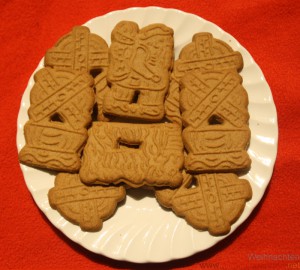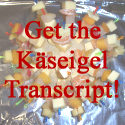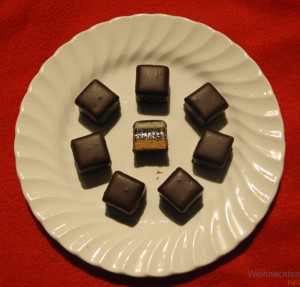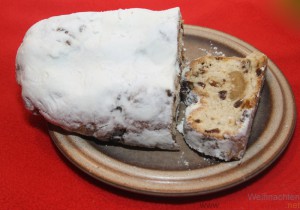Spekulatius
Wednesday, December 17th, 2008 Spekulatius is a type of spiced biscuit that is eaten at Christmas in Germany. As well as the normal form of the biscuit, there are variations made with almonds or with extra butter. The form of the biscuits tells the story of St. Nicholas.
Spekulatius is a type of spiced biscuit that is eaten at Christmas in Germany. As well as the normal form of the biscuit, there are variations made with almonds or with extra butter. The form of the biscuits tells the story of St. Nicholas.
Because of the price of the spices involved, these biscuits were expensive to make until the 1950s, so they are considered to be somewhat exotic. These days, however, they are readily available in most supermarkets.
To hear a simple explanation and a short discussion in German, listen to the podcast:
(Press the âplayâ button to listen to the podcast)



 The word Dominostein is used to describe a small baked sweet that is eaten at Christmas time in Germany. It is made up of two or three layers, the base being
The word Dominostein is used to describe a small baked sweet that is eaten at Christmas time in Germany. It is made up of two or three layers, the base being 
 Christstollen is a traditional cake that is eaten at Christmas.
Christstollen is a traditional cake that is eaten at Christmas.
